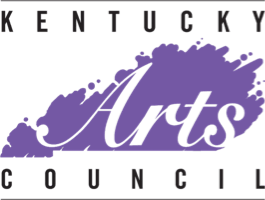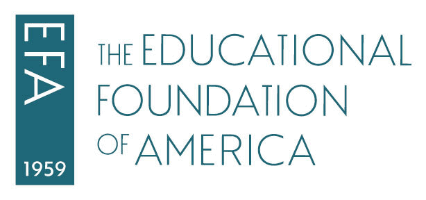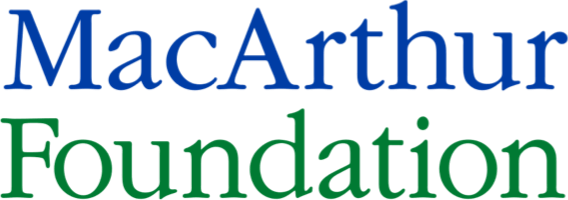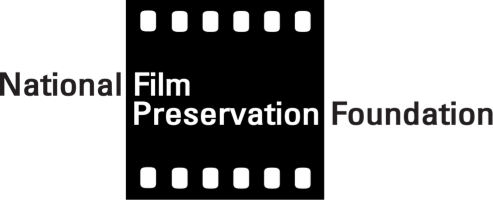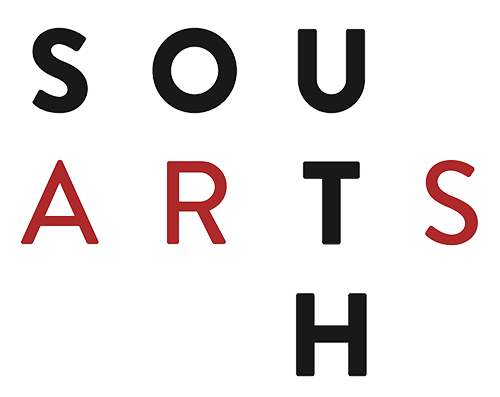Making art + media in the mountains since 1969.
Appalshop started as a film workshop, led by a man who had just completed a graduate thesis about the potential of the portable video machine to be “an amazing recorder of community.” He was right.
As national media poured into the region to cover the War on Poverty, local participants in that 1969 film workshop founded Appalshop to lift up the voices of people who actually lived here. Appalshop’s Donna Porterfield recalls:
The pictures from Life magazine were not how you’d portray your home if that was your home. People coming in, shooting stuff, take it to New York City; now you almost have the story they’re gonna tell before they even come. Appalshop's donna porterfield
Not so at Appalshop. In the 50 years since our founding, the overwhelming majority of our filmmakers, radio DJs, theater practitioners, and so many others on our staff have hailed from the region. We approach the stories we tell and the projects we undertake from the perspective of people who do call this place home.
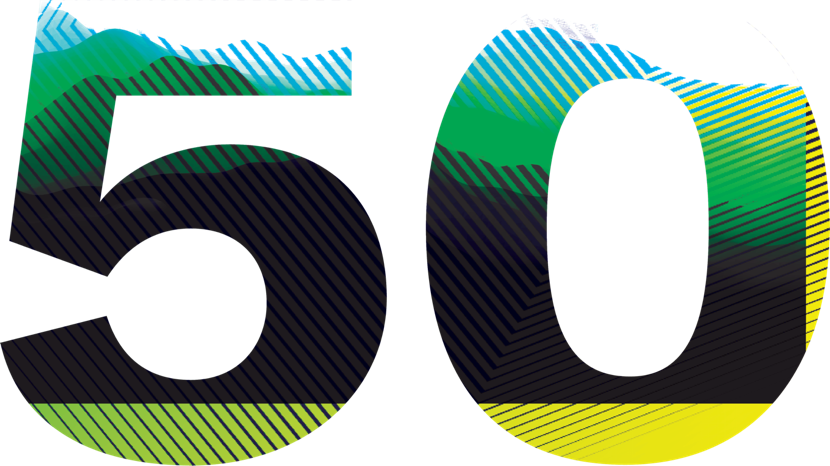
That means not only amplifying community voices, but engaging with our neighbors in creative placemaking. Our region has seen tremendous economic upheaval and historic out-migration, and we’re addressing these challenges head-on. In fact, as Appalshop’s Herb E. Smith recalls, they were at the heart of our very founding:
We felt like it was our job to stay and make a go of it in this place. People left, all around here, by the thousands, the tens of thousands. We felt like the way you deal with it is by creating the alternative. Appalshop's Herb E. Smith
And that’s exactly what we’re still up to today. For the last several years, Appalshop has been intentionally articulating our cultural work as community economic development work — in some ways, coming full circle to our founding in 1969.
Solar Pavilion
With a freestanding “solar pavilion” on Appalshop’s grounds, and more solar panels on the roof of our Boone building across the street, we’re generating almost all of our own energy usage and demonstrating what’s possible in the coalfields with the largest net-metered renewable energy system in Eastern Kentucky.
We decided to go solar because energy costs have gone up by almost 50 percent in the last decade, and they’re expected to keep rising. Installing solar allows us to stabilize and reduce our electricity costs, and once we’ve paid off our loan we expect to have virtually no electric bill.
Nor are we the only ones considering these factors. Unusually cold winters have pushed many organizations in Appalachia to the brink of closing their doors, and we believe alternative energy sources like solar are critical to their futures and our own. We see solar as a powerful economic engine in Eastern Kentucky, and we want to pave the way for our neighbors to explore work weatherizing homes and businesses, installing efficiency measures, and constructing systems like ours.
Since we installed our solar pavilion in 2019, it’s become the permanent home for our annual music festival, Seedtime on the Cumberland, and a frequent venue for other events in Whitesburg, Kentucky, including Levitt Amp Whitesburg and even the City of Whitesburg/Letcher County Farmer’s Market. We believe it’s almost impossible to be what you can’t see, so we’re thrilled to be helping our partners through the Letcher County Culture Hub install their own solar projects.
Got questions about solar? We answer some frequently asked questions about our pavilion below.
All Access EKY
We work with young people and health advocates in ten different Eastern Kentucky counties to ensure young people have access to the full range of reproductive health services and contraceptive methods. Called All Access EKY, the program combines storytelling, media making, clinical training, and community outreach.
Since All Access EKY began in 2017, young people have already produced more than two dozen media pieces. They range from portrait-driven documentaries — “I Know My Body,” “You Don’t Have to Rush,” or “Times Have Changed” — to informational explainers like “Let’s LARC About It” or “What Is Consent?”
At the core of All Access EKY’s structure is an engaged advisory board of healthcare workers, policy advocates and leaders from our ten county service area who work directly with our youth producers to create a model of change that’s intergenerational and regionally specific.
Appalshop's Appalachian Media Institute and Community Media Initiative coordinate All Access EKY in partnership with the Kentucky Health Justice Network and Power to Decide, the campaign to prevent unplanned pregnancy.
Letcher County Culture Hub
Appalshop’s community organizers initiated the Letcher County Culture Hub in 2015 to bring together more than 20 local partners — community centers, businesses, educators, artists, volunteer fire departments, and nonprofits —
Appalshop is now one partner in the Culture Hub, which was founded on the principle that every community has latent assets they can turn into new community wealth if they can unbind their imaginations to tell new stories about themselves.
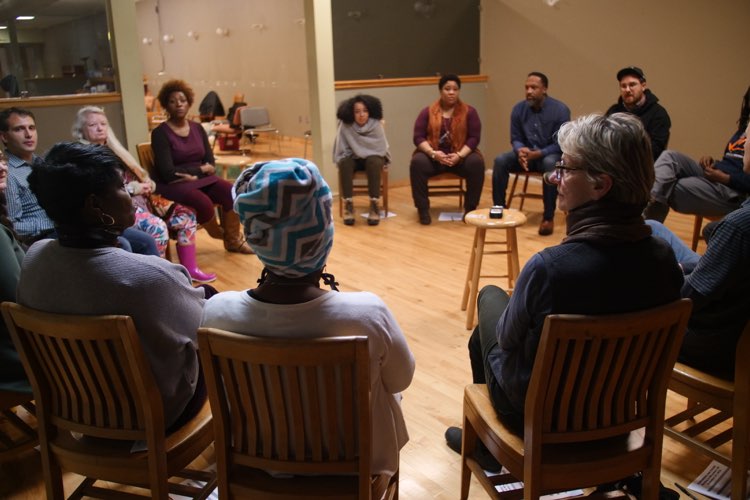
Since its founding, the Culture Hub has incubated three new businesses and revived two major cultural institutions, which are now revenue-positive. It has supported festivals, and performances, promoted tourism and civic engagement by functioning as a “community bulletin board,” and continues to engage in energy-efficiency initiatives and a multimillion-dollar project to bring broadband internet to the entire county.
The Culture Hub has also engaged in projects like Hands Across the Hills, spending multiple immersive weekends in dialogue with voters in rural Western Massachusetts since the 2016 election. We use our famous “story circle” method to work to eliminate the media screen that divides us as red versus blue — just one of many programs by which the Culture Hub empowers community members and develops meaningful tools of cultural exchange.
Community Media Initiative
Appalshop’s Community Media Initiative provides media training and technical assistance for organizations to improve and increase the use of media to tell their stories, and works with partners within Appalshop to develop programming that combines mediamaking, public education, and community development.
Since 2010, CMI has concentrated on sharing stories of Appalachia’s changing economy through the Making Connections News storybank, now containing over 200 radio and video features. Through broadcast on Appalshop’s radio station WMMT 88.7 FM and social media, Making Connections News invites region-wide discussion about economic options and community initiatives that can rebuild our economy, protect the natural beauty of our environment and preserve our region’s unique culture and quality of life.
CMI is also employing Appalshop’s regional storytelling methodology to create a series of radio and video features and public service announcements around diabetes in partnership with the Kentucky Department for Public Health. Another project CMI has incubated is All Access EKY, a partnership with Appalshop’s Appalachian Media Institute and Power to Decide, which combines media making, youth empowerment, and community organizing to increase access to the full range of contraceptive methods.
Multimedia projects like these enable Appalshop to participate in discussion of public policy that will benefit coalfield communities and the Appalachian region as a whole, telling stories of people who live here as no other outlet could.



